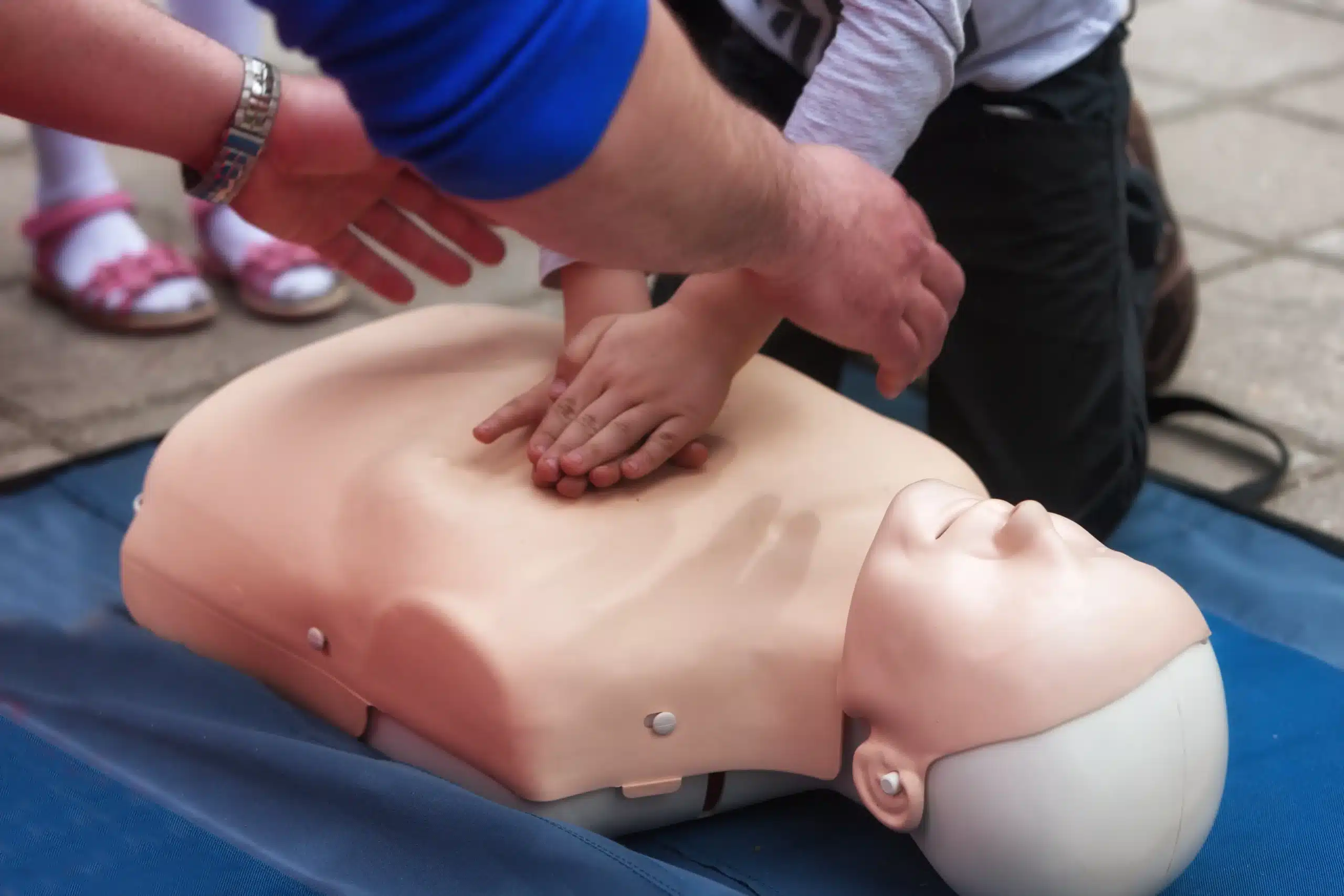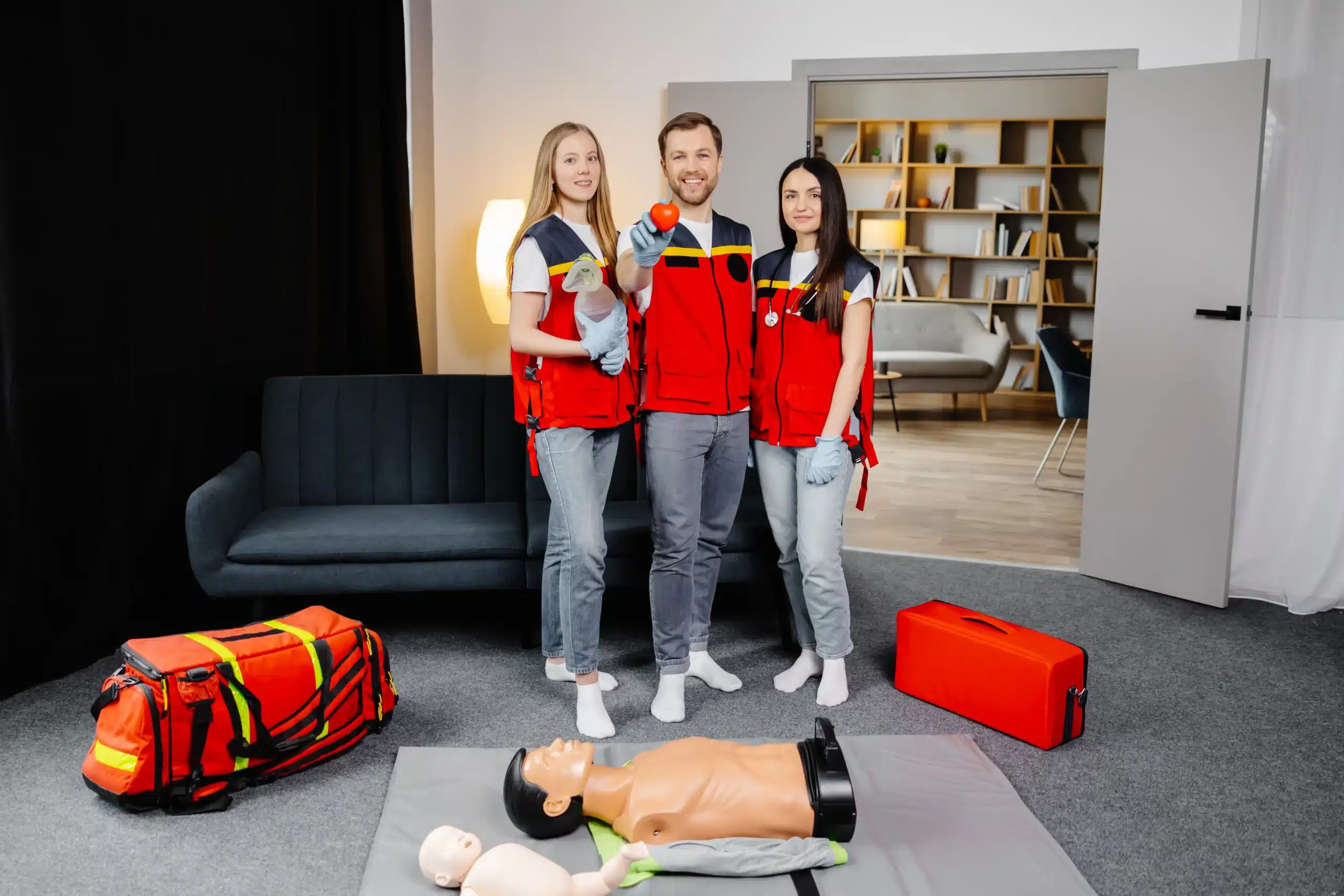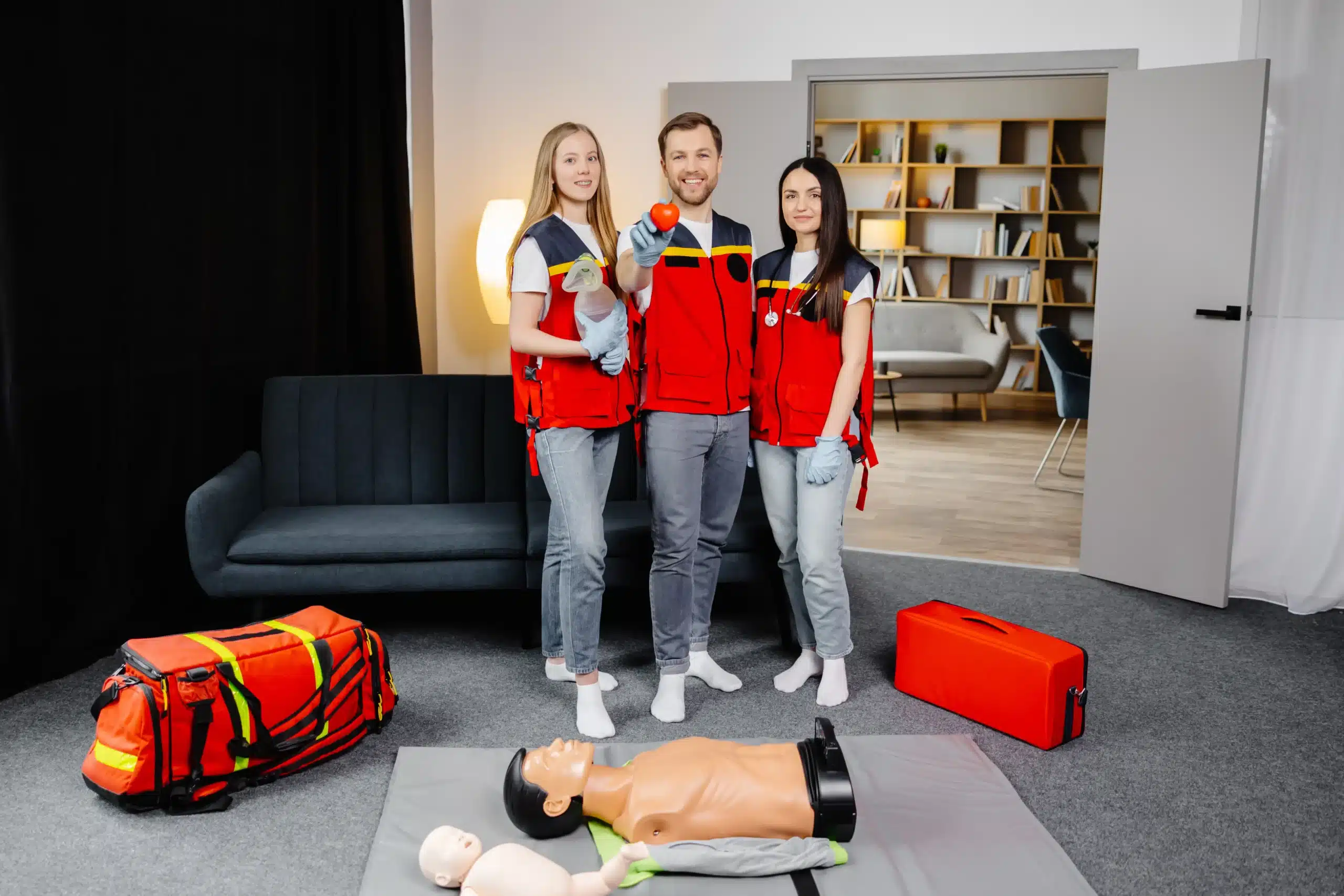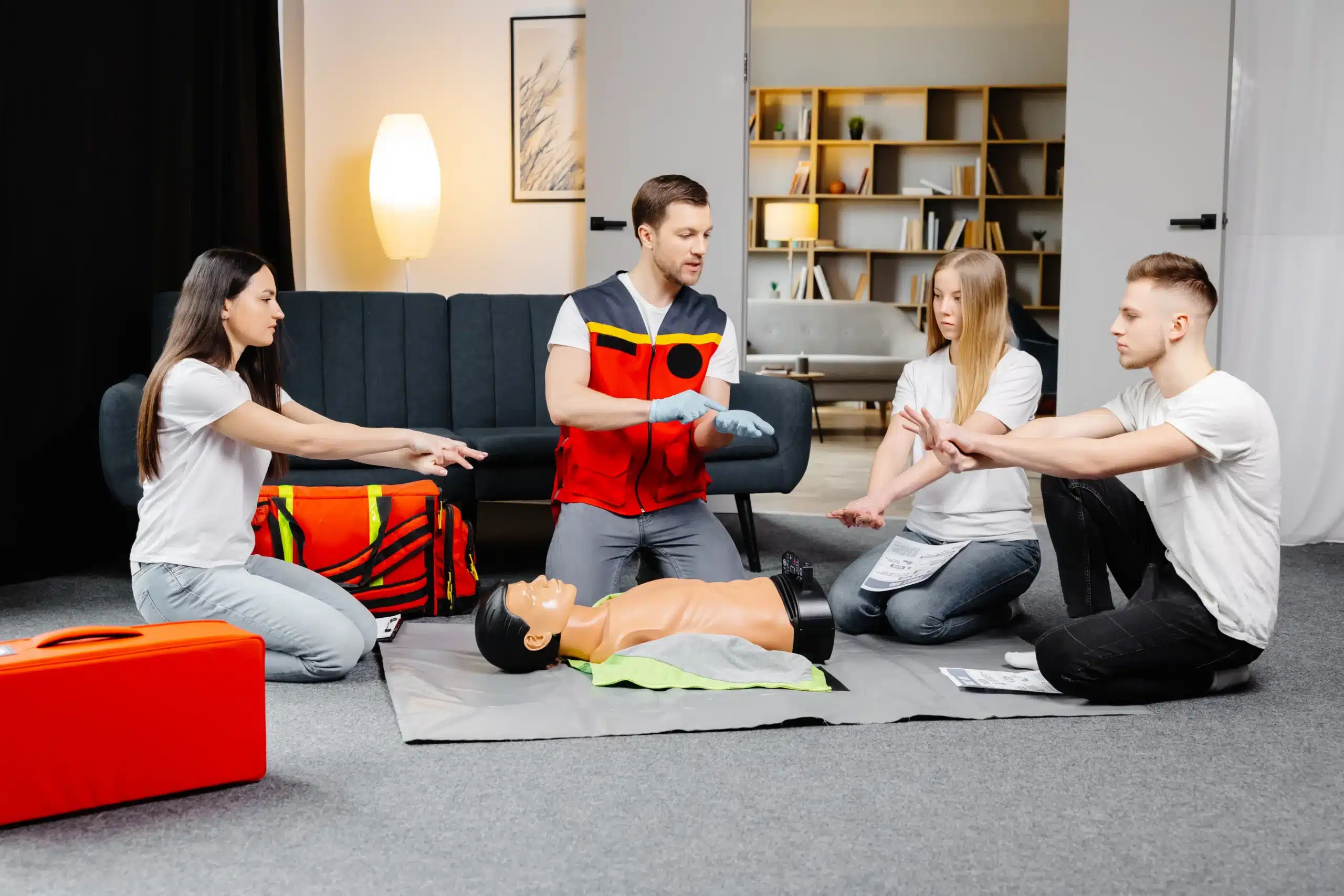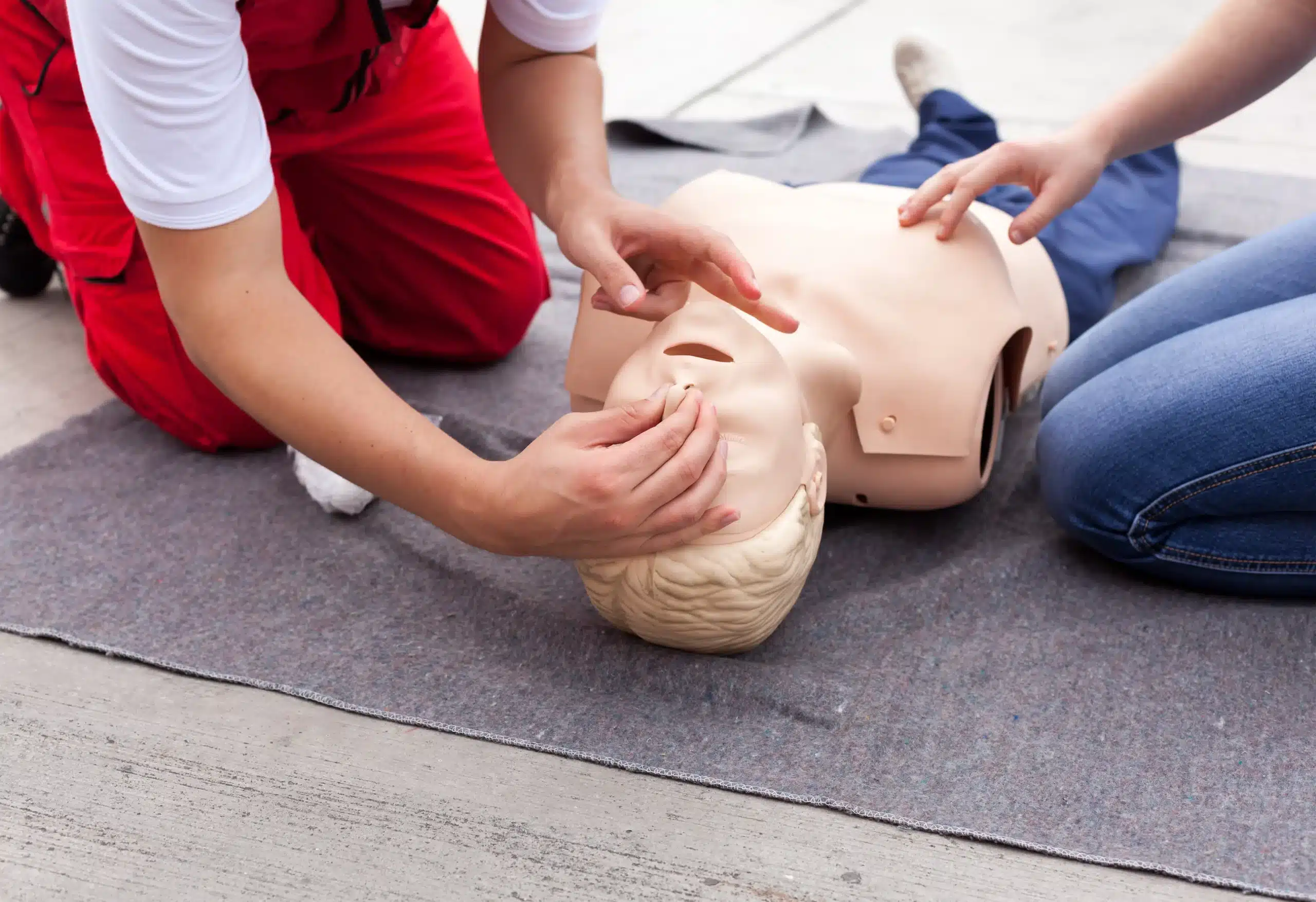Emergencies can happen anytime, anywhere. Are you ready to respond? CPR certification in Napa equips you with the skills to act quickly and confidently in critical situations. This guide simplifies the process of getting certified, covering everything from finding reputable training centers to understanding the different certification levels. We’ll explore the benefits of hands-on training, discuss renewal requirements, and highlight local programs that empower the Napa community to be prepared and ready to assist in medical emergencies. Whether you’re a healthcare professional, a workplace safety coordinator, or simply a concerned citizen, this guide will help you find the right CPR training in Napa.
Key Takeaways
- CPR skills empower you to make a real difference. Whether you’re a healthcare professional or a concerned community member, CPR training equips you to respond effectively during emergencies. Explore the various CPR training options available in Napa.
- Finding the right CPR course involves understanding your needs. Consider your schedule, preferred learning format (online, in-person, or blended), and career goals when selecting a course in Napa. Prioritize AHA-certified courses from reputable training centers.
- Staying current with your CPR skills is essential for confident responses. Renew your certification every two years and explore continuing education to refresh your knowledge and stay updated on the latest guidelines.
What is CPR Certification & Why Does it Matter in Napa?
CPR certification equips you with the skills to respond effectively during medical emergencies. It’s especially relevant in Napa, where timely intervention can significantly impact survival rates. This section clarifies what CPR certification entails and why it’s crucial for both professionals and the wider community.
What is CPR and why is it important?
CPR, or Cardiopulmonary Resuscitation, combines chest compressions and rescue breaths to maintain blood circulation and oxygen flow when someone’s heart stops beating. Learning CPR empowers you to provide immediate assistance in such critical situations, potentially bridging the gap until professional medical help arrives. This knowledge can dramatically improve the chances of survival for someone experiencing cardiac arrest. For more detailed information on CPR and its importance, you can explore CPR resources.
Legal and professional requirements in Napa County
In California, certain professions, particularly those in healthcare, require CPR certification. This ensures that professionals in these fields possess the necessary skills to respond to medical emergencies effectively. Certification is typically valid for two years and requires renewal to stay current with the latest guidelines. Always check with your licensing board or employer for specific requirements in Napa County. For general information on certification, you can learn more about CPR certification.
Common CPR training misconceptions
Several misconceptions surround CPR training, often preventing people from seeking certification. One common myth is that CPR always revives someone in cardiac arrest. While CPR significantly increases the chances of survival, it’s essential to understand that it doesn’t guarantee revival. Another misconception is that you must be certified to perform CPR. While certification provides comprehensive training, even uncertified individuals can provide hands-only CPR (compressions only) in an emergency. Addressing common CPR myths empowers more people to act confidently during emergencies. Some hesitate due to concerns about performing CPR incorrectly or injuring the victim. However, the potential benefits of intervening far outweigh the risks of inaction. CPR training is straightforward and focuses on essential life-saving techniques, not extensive medical training.
CPR Certification Courses in Napa
Finding the right CPR certification course in Napa depends on your individual needs and career goals. Fortunately, several excellent options are available, from general CPR training to specialized certifications for healthcare professionals. Let’s explore the different types of courses you can find in Napa.
AHA-Certified Courses
Safety Training Seminars offers a variety of American Heart Association (AHA)-certified courses, including BLS, ACLS, PALS, and First Aid. These certifications are widely recognized and accepted, making them suitable for many professions and personal growth. AHA certifications adhere to specific guidelines and protocols, ensuring you receive standardized, high-quality training.
Specialized training for healthcare providers
Healthcare providers often need more advanced life support training. The Napa CPR Training Center, affiliated with Napa Valley College, offers specialized courses designed for healthcare professionals, covering advanced techniques and procedures. These courses go beyond basic CPR and equip medical professionals with the skills to handle complex emergencies. You can also find specialized training like the RQI program at Safety Training Seminars.
Courses for the public and workplace safety
CPR training isn’t just for healthcare professionals; it’s a valuable skill for everyone. Numerous courses cater to the general public, including options for teachers, childcare providers, community groups, and anyone interested in learning these life-saving skills. These courses focus on essential CPR techniques and empower individuals to respond confidently in emergencies. Many workplaces also require CPR certification, so check with your employer for recommendations.
Online vs. In-Person Options
When choosing a CPR course, you’ll also want to consider online, in-person, or blended learning formats. Online courses offer flexibility, allowing you to learn at your own pace and on your own schedule. In-person classes provide hands-on training and direct interaction with instructors. Blended learning combines the benefits of both, offering online coursework supplemented by in-person skills practice. Safety Training Seminars offers flexible scheduling, with classes available seven days a week, making it easier to fit training into your busy schedule.
How to Get CPR Certified in Napa
So, you’re ready to get CPR certified? Great! This section breaks down everything you need to know about finding the right course and getting signed up in Napa.
Find reputable training centers
First things first, you’ll want to find a training center that offers high-quality instruction and certification recognized by organizations like the American Heart Association (AHA). Safety Training Seminars offers AHA-certified CPR, BLS, ACLS, PALS, and First Aid classes right here in Napa. They cover a wide range of courses, so you can find one that fits your specific needs. It’s always a good idea to choose a provider with certified instructors and a solid reputation.
Registration and prerequisites
Once you’ve found a training center you like, check the specific requirements for the course you’re interested in. Some courses, especially advanced ones, might require proof of prior CPR certification. For example, if you’re working toward an EMT certification at Napa Valley College, you’ll likely need current CPR credentials. Their EMT info sheet has more details on prerequisites. It’s always best to contact the training center directly to confirm any prerequisites and complete your registration.
Course costs and finances
CPR certification courses do come with a fee, but there are often ways to make it more affordable. Safety Training Seminars offers a low-price guarantee in Napa County, which can help you save money. Plus, their classes run daily from 8 am to 10 pm, giving you lots of flexibility to find a time that works for your schedule.
Group discounts and workplace training
If you’re coordinating training for a group, say for your workplace or a community organization, see if the training center offers group discounts. Safety Training Seminars provides group discounts and workplace training options, making it more cost-effective to train multiple people at once. This can be a great way to equip your team with these life-saving skills.
What to Expect During CPR Training
CPR training is straightforward and designed to equip you with life-saving skills. Here’s a glimpse of what you can expect during your CPR class:
Course format and duration
Safety Training Seminars offers classes seven days a week, from 8 am to 10 pm. This flexible schedule makes it easier to find a time that fits your needs. Whether you’re a busy professional, a student, or a stay-at-home parent, you can find a class that accommodates your schedule. Most CPR courses are completed in a single session, lasting a few hours.
Key skills and techniques
You’ll learn the essential skills to recognize and respond to cardiac arrest and other emergencies. This includes how to assess a situation, perform chest compressions, give rescue breaths, and use an automated external defibrillator (AED). These life-saving skills could make all the difference in a critical situation. You’ll also learn how to recognize the signs of a heart attack and stroke.
Hands-on training
Hands-on practice is a core component of CPR training. You’ll use a CPR training mannequin to practice finding the correct hand placement and the right amount of pressure for effective chest compressions. This practical experience builds your confidence and prepares you to act quickly and effectively in a real emergency. Instructors provide guidance and feedback, ensuring you master the techniques.
Assessment and certification
Your CPR skills will be assessed throughout the course. After successfully completing the course, you’ll receive an official American Heart Association (AHA) certification card. This nationally recognized certification is valid for two years.
Maintain Your CPR Certification
CPR isn’t a learn-it-once skill. Regular renewal and continuing education are essential to stay sharp and confident in your abilities. This section covers everything you need to know to maintain your CPR certification in Napa.
Renewal Requirements
CPR certifications, especially those from the American Heart Association, are typically valid for two years. Check your certification card for the exact expiration date. Don’t let it lapse! These certifications are globally recognized, so staying current is key whether you’re a healthcare professional or a concerned citizen. Plan and schedule your renewal course a few weeks before your certification expires to avoid any gaps in your qualification.
Continuing Education
Even if your certification isn’t due for renewal yet, consider taking refresher courses or exploring advanced training. The Napa CPR Training Center offers flexible options to fit various schedules and needs. Staying engaged with CPR education keeps your skills fresh and introduces you to any updates in techniques or guidelines. Think of it like a tune-up for your life-saving skills. You can find a range of courses, including BLS, ACLS, and PALS, to enhance your expertise.
Stay Updated on CPR Guidelines
CPR guidelines can evolve as medical knowledge advances. Staying informed about the latest recommendations is crucial for providing effective care in an emergency. Organizations like Richmond Training Concepts debunk common CPR myths and offer insights into current best practices. Resources like Emergency First Response also address misconceptions about CPR training and emphasize the importance of internationally accredited courses. Make it a habit to periodically check for updates from reputable sources like the AHA or your certifying organization. Knowing the latest guidelines can significantly impact your ability to respond effectively in a real-life emergency. Consider exploring additional resources like the RQI program and EMSA Child Care Health & Safety to further expand your knowledge and skills.
Community CPR Initiatives in Napa
Napa takes CPR and first-aid training seriously, understanding that a prepared community is a safer community. Local programs, partnerships, and easy-to-learn methods like Hands-Only CPR empower residents to respond effectively in emergencies. This commitment to community safety creates a network of trained individuals ready to assist in critical situations.
Local Programs and Events
Napa offers a wide range of CPR training options, from basic life support to advanced certifications for healthcare providers. Whether you’re a healthcare professional maintaining your certifications or someone wanting to learn a new skill, CPR training in Napa offers valuable resources to prepare you for emergencies. Check with local community centers, hospitals, and organizations like the Red Cross for upcoming training dates and special events. Safety Training Seminars also offers various courses to suit different needs.
Napa City Fire Department’s Hands-Only CPR Training
The Napa City Fire Department actively promotes Hands-Only CPR training within the community. This simplified method focuses on chest compressions to the beat of “Staying Alive,” eliminating the need for rescue breaths. The training is quick, taking only about 10 minutes, making it accessible to everyone. Learn more about the Napa City Fire Department’s Hands-Only CPR program. By encouraging widespread adoption of Hands-Only CPR, the fire department empowers more people to act quickly and potentially save lives during cardiac emergencies.
Local Partnerships
Collaboration between organizations strengthens Napa’s commitment to CPR training. Safety Training Seminars partners with local businesses and community groups to provide comprehensive safety training, including CPR, BLS, ACLS, PALS, and First Aid certification courses. These partnerships make it easier for individuals and workplaces to access high-quality training, contributing to a more prepared and resilient community.
Community Involvement Benefits
The active participation of Napa residents in CPR and first-aid training creates a ripple effect of positive change. Increased CPR knowledge translates to quicker response times in emergencies, potentially improving survival rates for cardiac arrest victims. This sense of preparedness fosters a stronger, more connected community where individuals feel empowered to help one another in times of need. For more information on the benefits of community involvement in CPR, visit CPR classes in Napa.
Related Articles
- CPR Training in Napa: Your Complete Guide – Napa CPR Classes
- Why CPR Is Important in Healthcare
- CPR Myths: Debunked 10 Facts Everyone Should Know
- CPR & First-aid Classes in Napa, CA – Napa CPR Classes
- CPR Certification in Vallejo: Your Guide – Napa CPR Classes
Frequently Asked Questions
How do I choose the right CPR class in Napa? Consider your specific needs. Are you a healthcare professional needing recertification, or are you learning CPR for the first time? Think about your schedule and whether an online, in-person, or blended learning format works best. Check what different training centers offer. Safety Training Seminars, for example, offers various AHA-certified courses and flexible scheduling. Look at course content, cost, and the training center’s reputation before deciding.
What if I’m nervous about performing CPR in a real emergency? It’s natural to feel apprehensive, but remember that any attempt at CPR is better than none. Training builds confidence through hands-on practice and guidance from certified instructors. Focus on learning the core techniques and remember that even basic CPR can significantly improve someone’s chances of survival.
Is online CPR certification accepted in Napa? While online courses offer flexibility, many organizations and employers prefer or require in-person skills assessment and certification. Blended learning, combining online coursework with in-person practice, is a good compromise. Always confirm acceptance with your employer or licensing board. Safety Training Seminars offers a variety of formats to choose from.
How much does CPR certification cost in Napa? Costs vary depending on the training center and the type of certification. Safety Training Seminars offers competitive pricing and a low-price guarantee in Napa County. Check with different providers for their fee schedules and ask about potential group discounts if you’re training with colleagues or friends.
How often do I need to renew my CPR certification? Most CPR certifications are valid for two years. Mark your calendar and plan your renewal course a few weeks before your certification expires to ensure continuous coverage. Staying current with the latest guidelines is essential for effective CPR delivery.
